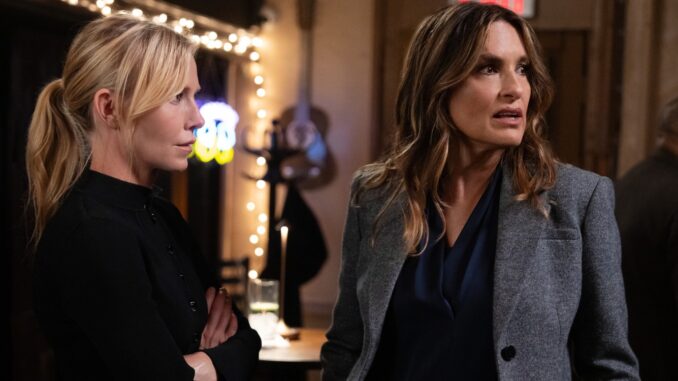
The Enduring Allure of the Badge: Can SVU's New Season Eclipse Past Glories?
"In the criminal justice system, sexually based offenses are considered especially heinous." These words, ingrained in the cultural lexicon, mark the entrance into the chilling world of Law & Order: Special Victims Unit. For over two decades, the squad room at 1 St. Michael's Place has been a constant in the landscape of television, a beacon shining a harsh light on the darkest corners of human behavior. But with each new season, especially the one designated "md07," a fundamental question arises: can it truly surpass the successes of its predecessors, or is it doomed to tread familiar ground, forever haunted by the ghosts of episodes past?
The answer, as complex as the cases the detectives grapple with, lies in a precarious balance of nostalgia, innovation, and the ever-evolving social and political landscape. SVU's initial success stemmed from its unflinching depiction of difficult subjects. It tackled taboo topics with a visceral honesty that resonated with audiences, fostering a sense of catharsis and sparking crucial conversations about victim advocacy and societal failures. The chemistry between the original cast, particularly Mariska Hargitay's Olivia Benson and Christopher Meloni's Elliot Stabler, was electrifying, a perfect counterpoint of empathy and righteous rage. These foundational elements, present throughout the early seasons, set a high bar for any subsequent iterations.
However, resting solely on these laurels would be a recipe for stagnation. SVU "md07," like any long-running show, faces the challenge of maintaining relevance. Society changes, perceptions shift, and the very definition of "heinous" evolves. The show must adapt to reflect these transformations. This means not only incorporating new technologies and investigative techniques but also engaging with contemporary issues such as online abuse, the #MeToo movement, and the complex dynamics of consent. The inclusion of diverse voices within the writers' room and in front of the camera is crucial to ensure authenticity and prevent the perpetuation of harmful stereotypes.
Innovation, too, is key. While the procedural format remains a cornerstone, "md07" could explore different narrative structures, delving deeper into the personal lives of the detectives or experimenting with anthology-style episodes focusing on specific social problems. Taking risks, even if they don't always pay off, demonstrates a commitment to pushing boundaries and avoiding predictability. For instance, the show could explore the long-term psychological effects on both victims and perpetrators, offering a more nuanced understanding of the cycle of trauma and abuse.
Yet, in the pursuit of innovation, the show must also honor its past. The return of Elliot Stabler, after a decade-long absence, injected new life into the series and reignited the dynamic between Benson and Stabler. This nostalgic element appealed to long-time viewers, drawing them back into the familiar embrace of the squad room. However, relying solely on nostalgia is a dangerous game. It's crucial to find a balance between honoring the past and forging a new path forward. The show must avoid becoming a caricature of itself, trapped in a cycle of recycled storylines and predictable resolutions.
Ultimately, whether SVU "md07" can surpass previous successes depends on its ability to learn from its past, embrace the present, and anticipate the future. It requires a delicate dance between honoring the core values that made the show iconic – its commitment to justice, its unwavering support for victims, and its willingness to confront difficult truths – and adapting to the ever-changing landscape of social consciousness. If the show can successfully navigate this complex terrain, it has the potential to not only maintain its relevance but to surpass its past glories, continuing to serve as a powerful voice in the ongoing conversation about crime, justice, and the human condition. The badge, after all, is not just a symbol of authority, but a symbol of hope, a promise that even in the darkest corners of the human experience, there is always someone fighting for justice. And that is a message that will always resonate.
